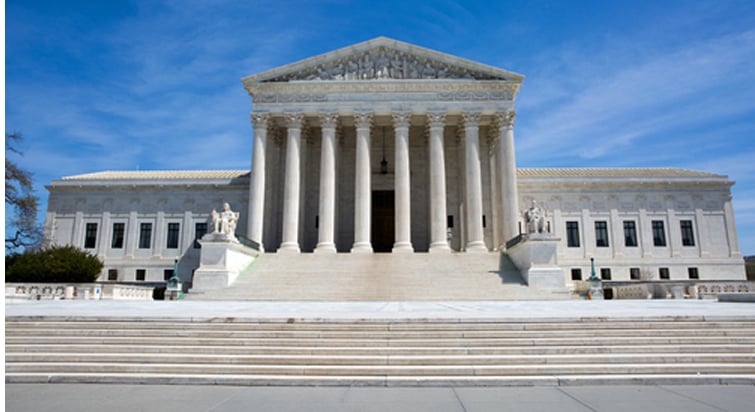ABA urges Supreme Court to follow Miller standard for juvenile punishments

Shutterstock
In an amicus brief filed Tuesday, the ABA urged the U.S. Supreme Court to recognize that juveniles’ “diminished culpability and greater prospects for reform” separate them from adults and that those whose crimes “reflect transient immaturity, rather than irreparable corruption” should not face life in prison.
The Supreme Court is considering in Mathena v. Malvo whether its decision banning mandatory sentences of life without parole for juveniles can be used to upend earlier discretionary life-without-parole sentences imposed on teenagers.
Lee Boyd Malvo was 17 when he and John Allen Muhammad—known as the “D.C. snipers”—killed 10 people in a series of shootings in the Washington, D.C., area in 2002. He was convicted of two counts of capital murder for shootings that occurred in Fairfax County in Virginia and given two life sentences.
Malvo was given additional sentences of life in prison in other proceedings.
The Supreme Court has since held that the Eighth Amendment limits juvenile punishments, ruling in Miller v. Alabama in 2012 that juveniles cannot receive sentences of life without parole even in homicide cases and in Montgomery v. Louisiana in 2016 that its decision in Miller applies retroactively.
The 4th U.S. Circuit Court of Appeals at Richmond, Virginia, heard Malvo’s challenge to the life sentence imposed by Virginia and decided in 2018 that “even though Malvo’s life-without-parole sentences were fully legal when imposed, they must now be vacated because the retroactive constitutional rules for sentencing juveniles adopted subsequent to Malvo’s sentencings were not satisfied during his sentencings.”
The 4th Circuit vacated Malvo’s terms of life without parole and remanded for resentencing to determine whether he qualified as a juvenile offender who may be sentenced to life in prison because his “crimes reflect permanent incorrigibility” or whether his crimes instead “reflect the transient immaturity of youth.”
The ABA said in its brief that a ruling by the Supreme Court that weakens Miller would “undermine the rule of law” and threaten the juvenile justice reforms state legislatures and courts have adopted since the 2012 decision. Twenty-eight states and the District of Columbia do not sentence juveniles to life without parole or have since banned the practice.
“A ruling affirming the court of appeals decision below, however, would be consistent not only with the rule of law, but also with the ABA policy of supporting juvenile justice,” according to the brief. “For over 40 years, the ABA has worked to ensure appropriate protections for juvenile defendants when transferred to the adult criminal justice system and has taken positions against imposing capital punishment and life without the possibility of parole on juvenile offenders.”
After promulgating comprehensive standards for juvenile justice in 1980, the ABA adopted policies that opposed capital punishment for anyone under the age of 18 who committed a crime and affirmed its position that “children are different,” the brief says.
The ABA also filed amicus briefs in several cases concerning the juvenile justice system, including Miller and Montgomery.
Randall Mathena, the warden of Virginia’s high-security Red Onion State Prison, appealed the 4th Circuit decision in Malvo’s case to the Supreme Court. He said in the cert petition that the Supreme Court of Virginia has “adopted a diametrically opposed interpretation of Montgomery.”
“The Supreme Court of Virginia acknowledged that prohibiting discretionary life sentences for juvenile homicide offenders may be the next step in this Court’s Eighth Amendment jurisprudence, but it concluded that both Montgomery and Miller ‘addressed mandatory life sentences without possibility of parole,’” he wrote.
Oral arguments in the case are scheduled for Oct. 16.
See also:
ABA Journal: “Supreme Court to consider life-without-parole sentence for teen DC sniper”
Write a letter to the editor, share a story tip or update, or report an error.


